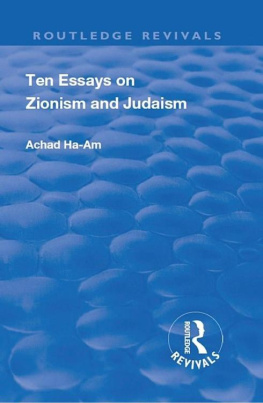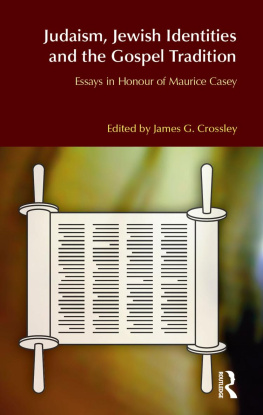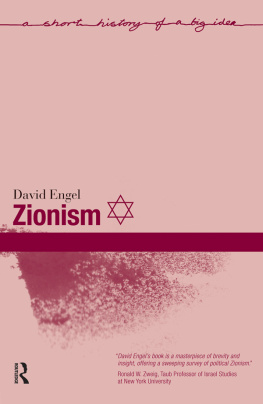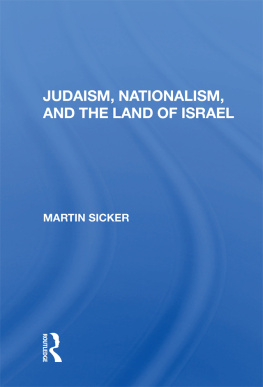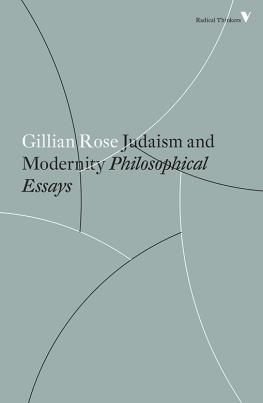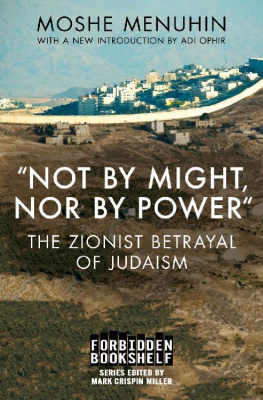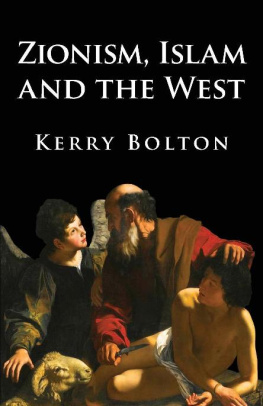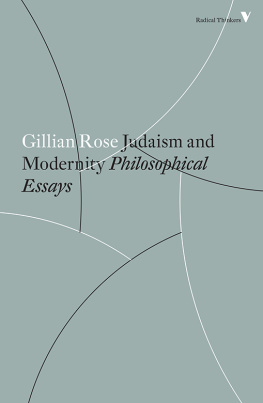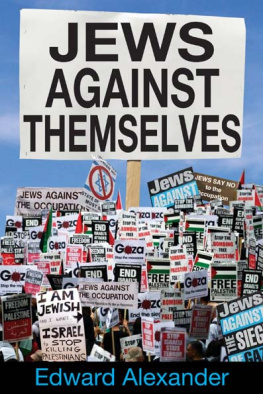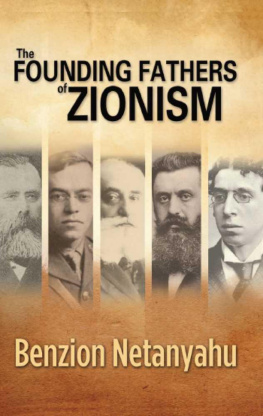Achad Ha-Am - Ten Essays On Zionism And Judaism
Here you can read online Achad Ha-Am - Ten Essays On Zionism And Judaism full text of the book (entire story) in english for free. Download pdf and epub, get meaning, cover and reviews about this ebook. year: 1922, genre: Politics. Description of the work, (preface) as well as reviews are available. Best literature library LitArk.com created for fans of good reading and offers a wide selection of genres:
Romance novel
Science fiction
Adventure
Detective
Science
History
Home and family
Prose
Art
Politics
Computer
Non-fiction
Religion
Business
Children
Humor
Choose a favorite category and find really read worthwhile books. Enjoy immersion in the world of imagination, feel the emotions of the characters or learn something new for yourself, make an fascinating discovery.
- Book:Ten Essays On Zionism And Judaism
- Author:
- Genre:
- Year:1922
- Rating:5 / 5
- Favourites:Add to favourites
- Your mark:
- 100
- 1
- 2
- 3
- 4
- 5
Ten Essays On Zionism And Judaism: summary, description and annotation
We offer to read an annotation, description, summary or preface (depends on what the author of the book "Ten Essays On Zionism And Judaism" wrote himself). If you haven't found the necessary information about the book — write in the comments, we will try to find it.
Ten Essays On Zionism And Judaism — read online for free the complete book (whole text) full work
Below is the text of the book, divided by pages. System saving the place of the last page read, allows you to conveniently read the book "Ten Essays On Zionism And Judaism" online for free, without having to search again every time where you left off. Put a bookmark, and you can go to the page where you finished reading at any time.
Font size:
Interval:
Bookmark:
TEN ESSAYS ON ZIONISM AND JUDAISM
ACHAD HA-AM
TRANSLATED FROM THE HEBREW BY
LEON SIMON
Author of Studies in Jewish Nationalism
Copyright 2018 GoForBooksUK.
All rights reserved. No part of this book may be reproduced in any form or by any electronic or mechanical means including information storage and retrieval systems, without permission in writing from the publisher. The only exception is by a reviewer, who may quote short excerpts in a review.
This book is a historical reproduction. Any names, characters, places, incidents or points of view are those of the author as intended, and of the time period, which may or may not be representative of societal views today or relevant; neither are they representative of GoForBooks views or opinions.
Original Copyright, 1922, Asher Zvi Hirsch Ginsberg aka. Achad HaAm (18561927).
CONTENTS
TRANSLATORS INTRODUCTION
The present volume of translations from the Hebrew of Achad Ha-Am of the eightwhich is also the first essay written by Achad Ha-Ambelongs to the early years of the Jewish national movement, when the Zionist Organisation was unborn, and the very name Zionism uninvented. The last of the eightand the most recent of Achad Ha-Ams essays, for the war and ill-health have made him silent of recent yearsrecords his impressions of the practical results achieved by Zionism in Palestine up to 1911.
As the background of these essays is for the most part unfamiliar to English readers, it will not be out of place to give here a brief sketch of the phases through which the Zionist movement has passed, in so far as that is necessary for a proper understanding of the criticisms and allusions in the essays themselves.
The first organised form of Zionism took shape in Russia under the stress of the pogroms of 1880-81. Those pogroms, following a period during which the Russian Government had seemed to be working sincerely towards the emancipation of the Jews, and themselves followed by a whole code of restrictive legislation known as the May Laws, awoke into a blaze the national sentiment which had slumbered but had not died in the Russian Ghetto. They revealed the evils of galuth exile, life outside Palestinein all their hideousness, and turned mens minds to the active accomplishment of that escape from galuth for which during many centuries the Jew had only prayed. Chibbath Zion (Love of Zion) became an organised movement, and throughout Russia groups of Chovev Zion (Lovers of Zion) began to work for the settlement of Jews on the land in Palestine. At the head of the movement stood Dr. Leo Pinsker, who in his pamphlet Auto-Emancipation had outlined an ambitious scheme for the emigration of Jews en masse to some territory (not necessarily Palestine) where they could be their own masters. His proposal found no response among the emancipated Western Jews, to whom it was addressed; and as its realisation was obviously beyond the power of the oppressed and persecuted Russian Jews, its author turned to Chibbath Zion as the only means open to him of working for a national regeneration of Jewry. Events soon showed that Chibbath Zion was as yet unable to achieve so large an aim. The difficulties in the way of settling Jews on the land in Palestine were enormous, and the resources of the Chovev Zion were painfully limited. The national sentiment was not sufficiently alive in the Jewish masses to induce large numbers of them to brave the hardships and privations of life in Palestine for the sake of a national ideal. Any Jew whose primary object was to escape from pogroms and May Laws and to better his individual position would naturally prefer some country, like the United States, where economic life was already developed. The Chovev Zion attempted, rather unwisely, to make Palestine attractive to the less idealistically minded by exaggerating the possibilities of individual self-advancement which it held out. The natural result was disappointment and disillusion; and the Palestinian agricultural settlements (or colonies, as they are generally called) would have faded away altogether but for the generous assistance of Baron Edmond de Rothschild, of Paris. Thanks to him the first colonies pulled through, and after many vicissitudes were set on the road to independence. But the whole colonisation movement remained small and poor, and any hopes which might have been entertained of its bringing about even the beginning of a solution of the material problem of galuth were dissipated at an early date. Meanwhile, however, the Chovev Zion contributed to a national work of the first importance by helping to lay the foundations of a revival of the Hebrew language, especially in Palestinea development which, while it had nothing to do with the solution of any material problem, had very much to do with the stimulation of that national sentiment which is the only possible basis of a national as distinct from a purely philanthropic or economic movement.
In 1895, when the colonisation work was at a low ebb, the Jewish world was startled by the appearance of Der Judenstaat, a pamphlet in which a brilliant Viennese journalist and playwright, Dr. Theodor Herzl, advocated, as a solution of the Jewish problem, the establishment of an autonomous Jewish State in some suitable territory (not necessarily Palestine). Herzls scheme was (unconsciously) more or less a reproduction of that of Pinsker; but it met with a different fate, largely, no doubt, thanks to the silent growth of the national sentiment which had been brought about during the intervening years by the awakeningalbeit to little purpose from a purely practical point of viewof Jewish interest in Palestine. While the Western Jews were for the most part as deaf to Herzls call as they had been to Pinskers, many of the Chovev Zion found in his pamphlet a new inspiration, and their pressure induced him to take in hand himself the practical realisation of a scheme which he had meant to leave others to carry out. The result was the Zionist Organisation, which was founded at the first Zionist Congress at Basle in 1897. This organisation, though the great body of its supporters was drawn from the ranks of the Chovev Zion , reflected the outlook and ideas of Herzl and his handful of friends and supporters from the West. There was to be no more waste of time and effort on petty colonisation. Instead, there was to be a political organisation of Jewry, with a large National Fund, which would first of all buy Palestine from the Turk under a Charter guaranteed by the European Powers, and would then proceed to settle in Palestine all those Jews who could not be happy where they were. This beautiful dream roused the Jewish masses for a time to a kind of Messianic fervour; it was so much more alluring than the hard realities which the Chovev Zion had had to face. But after a few years the inevitable awakening came. Realities remained realities, and the Charter remained a distant vision. Herzl passed away untimely in 1904, and with him and his wonderful personality passed the only force which could make the dream-world appear for a time real. He had, indeed, obtained from the British Government an offer of a territory in East Africa (commonly, though incorrectly, located in Uganda) for a quasi-autonomous settlement of Jews; but this triumph of the Zionist Organisation only served to bring out the essential difference, hitherto more or less successfully kept in the background, between the head of the Organisation and its body. The Chovev Zion , however they may have erred in attempting to further the colonisation of Palestine by appeals to individual self-interest, had at any rate remained sufficiently nationalist to feel that a national Jewish settlement could by no possibility have any other home than Palestine. They had seen to it that the Zionist Organisation put Palestine and no other country into its programme. Now, when they found their trusted and beloved leader attempting to divert them to East Africathough he averred solemnly that East Africa was only intended as a temporary refuge, a Nachtasyl, and Palestine remained the real goalthey felt that they had been betrayed. Herzls enormous influence averted, at the Congress of 1903, a direct refusal of the British Governments offer: a Commission was appointed to study the proposed territory. But when the next Congress met, in 1905, Herzl was no more, and the opponents of East Africathe Zion Zion, Zion-Zionists, as they were calledcarried the day. There was of course a violent reaction the masses swung away from Zionism, now that it no longer held out to them the hope of a refuge from persecution and poverty, and some of the minority party founded a new body, the Jewish Territorial Organisation, to search the globe for a home of refuge. This was all to the good, for the Zionist Organisation was purged of Messianism and was able to face realities again. The framework, and to a large extent the phraseology, created by Herzl were retained, but essentially the Zionist Organisation became perforce an instrument for the realisation of the national ideal along the two lines on which alone real advance is possiblethe lines of Palestinian development and national education. It was only during the war, which brought on the one hand the Balfour Declaration, with its promise of a National Home for the Jewish people in Palestine, and on the other hand untold suffering and loss to the Jewish masses in Eastern Europe, that Messianic hopes were again arousedagain to be followed by the inevitable disillusionment and reaction.
Next pageFont size:
Interval:
Bookmark:
Similar books «Ten Essays On Zionism And Judaism»
Look at similar books to Ten Essays On Zionism And Judaism. We have selected literature similar in name and meaning in the hope of providing readers with more options to find new, interesting, not yet read works.
Discussion, reviews of the book Ten Essays On Zionism And Judaism and just readers' own opinions. Leave your comments, write what you think about the work, its meaning or the main characters. Specify what exactly you liked and what you didn't like, and why you think so.

